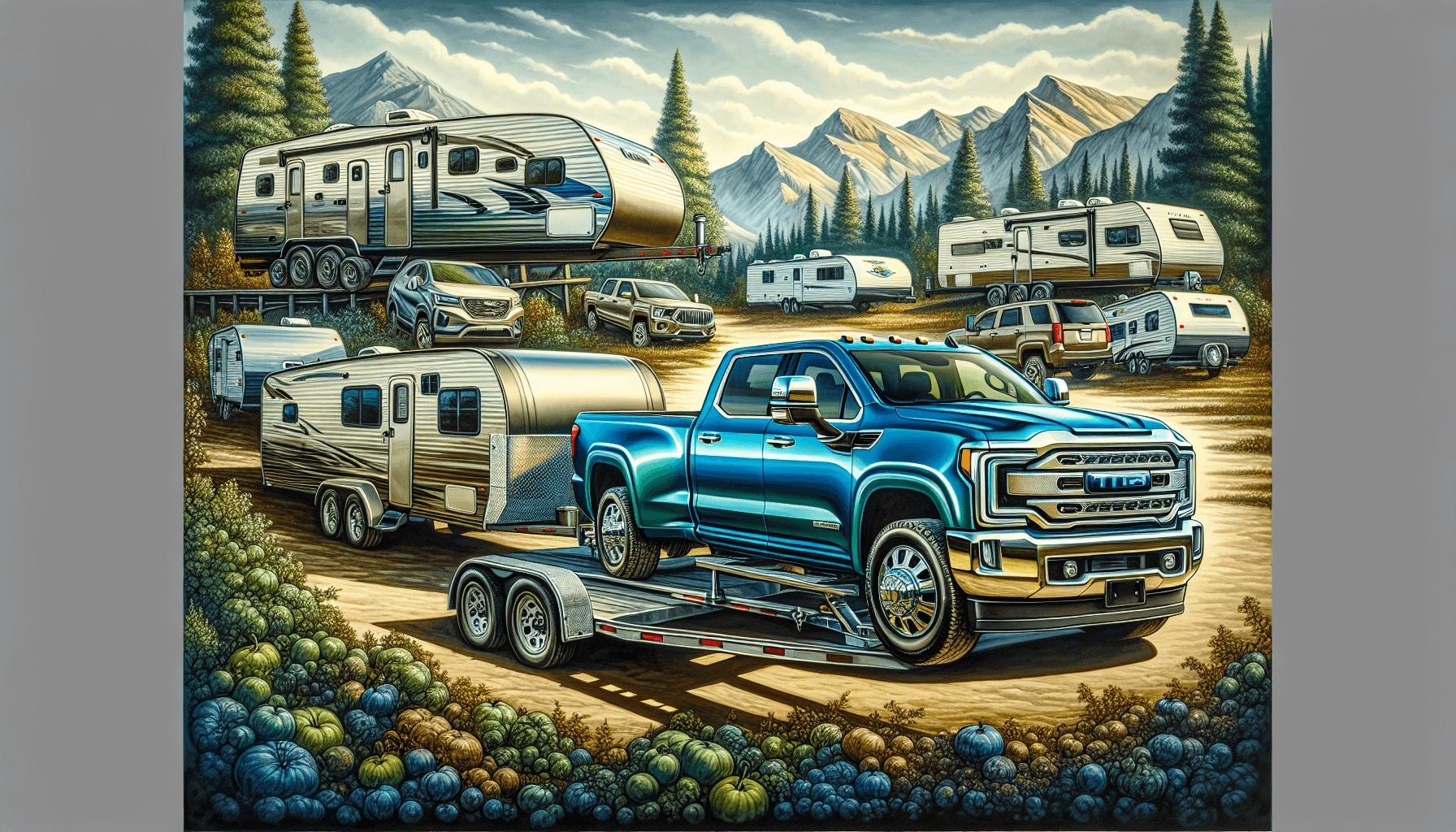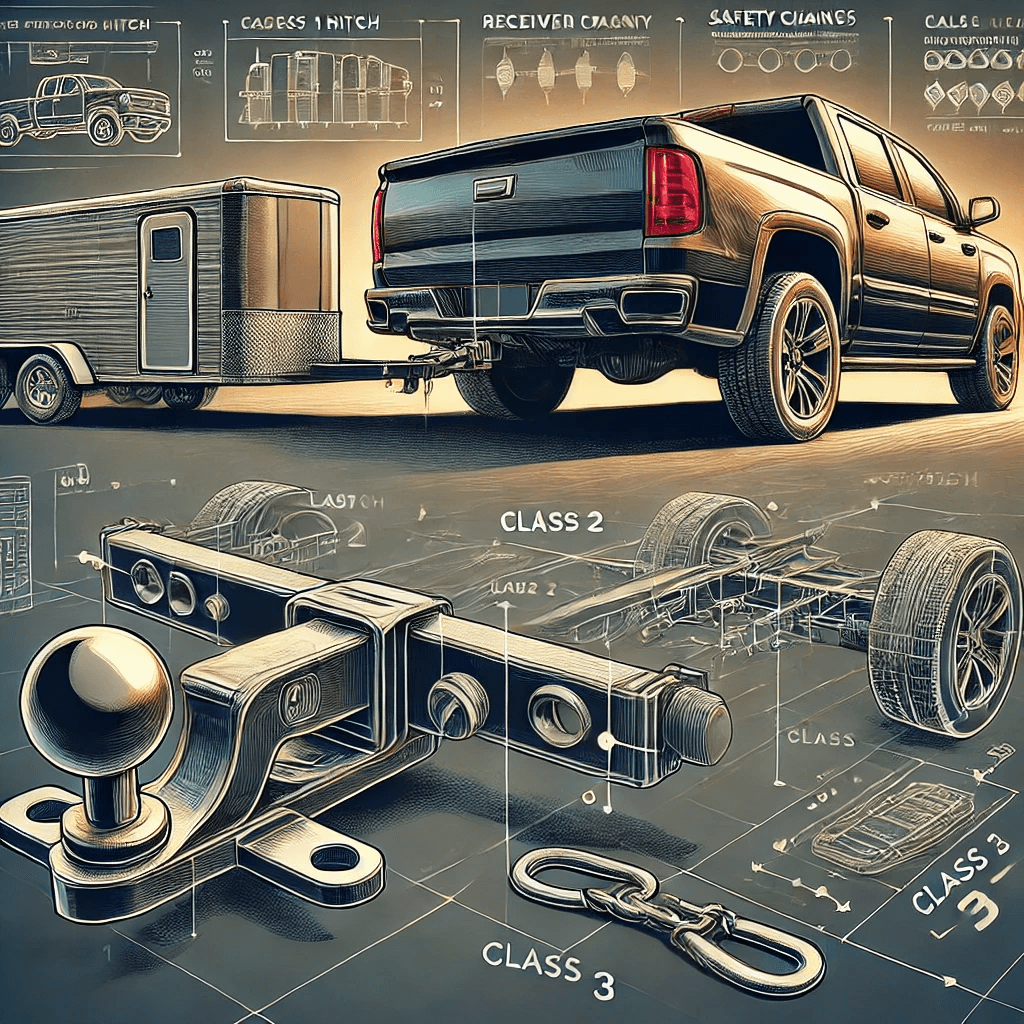
The Ultimate Guide to Trailer Hitches: Choosing the Right One
When it comes to towing, choosing the right trailer hitch is crucial for your safety and the protection of your vehicle. The world of trailer hitch types can be overwhelming, with various options designed to meet different towing needs. Whether you're planning to haul a small utility trailer or a heavy-duty camper, understanding the basics of trailer hitches is essential to ensure a smooth and secure towing experience.
In this comprehensive guide, we'll walk you through the process of selecting the best trailer hitch for your specific requirements. You'll learn how to determine your towing needs, match the hitch class to your vehicle, and explore different hitch types for various applications. We'll also cover important aspects such as towing capacity, hitch installation, and choosing the right accessories like wiring harnesses and hitch locks. By the end of this article, you'll have the knowledge to make an informed decision about the best towing hitch for your vehicle and trailer.
Determining Your Towing Needs
To choose the right trailer hitch, you need to understand your towing needs. Start by checking your vehicle's towing capacity, which you can find in your owner's manual. This includes the maximum Gross Trailer Weight (GTW) and Gross Combined Weight Rating (GCWR). It's crucial not to exceed these limits to avoid straining your vehicle's engine and drivetrain.
Next, consider your trailer's weight and payload capacity. The Gross Vehicle Weight Rating (GVWR) is the maximum allowed weight of your trailer and cargo combined. You can find this on your trailer's VIN label. To calculate your payload capacity, subtract the trailer's empty weight from the GVWR.
Lastly, don't forget about tongue weight, which should be 10-15% of your trailer's total weight. Proper tongue weight distribution ensures safe and stable towing.
Matching Hitch Class to Your Vehicle
To choose the right trailer hitch, you need to match the hitch class to your vehicle. Hitch classes range from 1 to 5, each designed for specific vehicle types and towing capacities. Class 1 hitches, suitable for compact cars and sedans, can tow up to 2,000 lbs. Class 2 hitches, found on full-size sedans and small SUVs, handle up to 3,500 lbs. For SUVs and crossovers, Class 3 hitches are common, with a capacity of up to 8,000 lbs. Pickup trucks often use Class 4 hitches, capable of towing up to 10,000 lbs. Heavy-duty vehicles benefit from Class 5 hitches, which can handle up to 20,000 lbs. Always check your vehicle's specific towing capacity before selecting a hitch class.
Exploring Hitch Types for Different Applications
When choosing a trailer hitch, you'll encounter various types designed for specific applications. Receiver hitches are the most common, offering versatility with their square metal tube that accepts different accessories. They come in five classes, each with increasing towing capacity. For heavy-duty towing, consider 5th wheel hitches, which can handle up to 30,000 lbs and are ideal for large RVs. Gooseneck hitches, often used in agriculture, have an impressive capacity of up to 38,000 lbs. Weight distribution hitches help level your vehicle and trailer, while pintle hitches, with their hook-and-ring design, are perfect for rugged industrial use, capable of towing up to 60,000 lbs.

Selecting the Right Hitch Accessories
To ensure a safe and secure towing experience, you need to choose the right hitch accessories. These play a crucial role in connecting your vehicle to the trailer and maintaining control during your journey. Let's explore some essential accessories:
- Ball Mounts: These form the foundation of your towing setup, connecting your vehicle's hitch to the trailer's coupler. Choose a ball mount that matches your trailer's requirements in terms of size and weight capacity.
- Trailer Balls: Available in various sizes and weight capacities, trailer balls must fit your trailer's coupler perfectly. Selecting the correct size is vital for a secure connection.
- Safety Chains: These serve as a backup connection between your vehicle and trailer. Properly sized and attached safety chains prevent trailer detachment if the hitch fails.
- Wiring Harnesses: These enable electrical signal transfer between your vehicle and trailer, powering lights and brakes. Ensure compatibility and proper installation for safe towing.
Importance of Regular Hitch Maintenance
Regular maintenance of your trailer hitch is essential to ensure long-term safety and reliability. Over time, components like the ball mount, safety chains, and wiring harnesses can wear down or become damaged, leading to potential towing hazards. Inspect your hitch before every trip, looking for signs of corrosion, loose bolts, or any mechanical wear that could compromise its performance. Greasing moving parts, checking the tightness of connections, and ensuring that the wiring is functioning properly can prevent issues on the road. By prioritizing maintenance, you’ll extend the life of your hitch and ensure a smoother, safer towing experience.
Conclusion
Choosing the right trailer hitch has a significant impact on your towing experience and safety. This guide has explored the key factors to consider, from understanding your towing needs to matching the hitch class to your vehicle. We've also delved into various hitch types for different applications and highlighted essential accessories to ensure a secure connection between your vehicle and trailer.
Armed with this knowledge, you're now better equipped to make an informed decision about the best hitch for your specific requirements. Remember, proper installation and regular maintenance are crucial to ensure your hitch performs reliably over time. By taking the time to choose and set up your trailer hitch correctly, you'll be all set for safe and worry-free towing adventures.
FAQs
How do I choose the appropriate trailer hitch for my needs?
To select the right trailer hitch, you must first determine your towing requirements. Trailer hitches come in various classes, each designed to handle specific weight capacities. For example, a Class 1 hitch is suitable for towing lighter loads, while a Class 5 hitch is better for heavier payloads.
How can I determine the hitch class necessary for my vehicle?
Hitch classes are defined by their weight capacities and receiver sizes. Here’s a quick overview:
- Class 1 Hitch: Receiver size is 1-1/4" x 1-1/4", suitable for towing up to 2,000 lbs.
- Class 2 Hitch: Receiver size is 1-1/4" x 1-1/4", suitable for towing up to 3,500 lbs.
- Class 3 Hitch: Receiver size is 2" x 2", suitable for towing up to 8,000 lbs.
- Class 4 Hitch: Receiver size is 2" x 2".
What are the main types of trailer hitches available?
There are five primary types of trailer hitches:
- Receiver Hitches: Commonly used for most vehicles and applications.
- Weight Distribution Hitches: Help distribute the trailer’s weight.
- 5th-Wheel Hitches: Used for large trailers, typically in trucks.
- Gooseneck Hitches: Offer greater stability for heavier loads.
- Pintle Hitches: Designed for heavy-duty towing often in commercial and industrial settings.
What are the differences between Class 1, Class 2, and Class 3 trailer hitches?
The main differences between these classes are their receiver sizes and towing capacities:
- Class 1 Hitch: Has a 1-1/4-inch receiver, can tow up to 2,000 pounds.
- Class 2 Hitch: Also has a 1-1/4-inch receiver, but can tow up to 3,500 pounds.
- Class 3 Hitch: Features a 2-inch receiver, suitable for towing up to 8,000 pounds.
